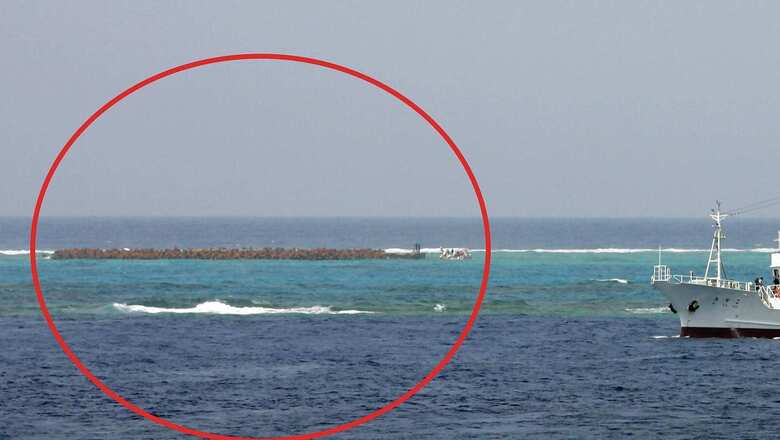
views
China said Japan was selfish to claim Okinotori island, reigniting an age-old dispute between both nations. Japan has long claimed Okinotori island and said that it is Japan’s southernmost island.
“Japan, in pursuit of selfish interest, has illegally staked claim to nearly 700,000 square kilometers of jurisdictional waters based on the tiny reef. (This) undermines the overall interests of the international community,” Chinese foreign ministry spokesperson Zhao Lijian said on Tuesday.
The dispute arose after Japanese government applied to the UN to establish a 200-nautical mile (370km) exclusive economic zone around the Okinotori reef, which would give it special benefits and rights over the exploration and use of marine resources within an area of more than 400,000 square kilometers, the South China Morning Post said.
Okinotori island lies halfway between Taiwan and Guam and China contends that the islets are merely a reef.
It further said that it does not allow Japan to benefit from a 200 nautical-mile radius exclusive economic zone (EEZ) or continental shelf which applies to islands under international law, news agency Bloomberg reported.
The area surrounding Okinotori islets in the Pacific Ocean consists of low-lying rocks, but Japan has augmented those with concrete, similar to what China has done with several islets in the South China Sea.
Tokyo’s local government under whose purview Okinotori falls, said that the economic zone amounts to 420,000 square kilometers (162,000 square miles), making it larger than Japan’s total land mass, news agency Bloomberg said.
Earlier in 2016, Japan also built a three-level observatory that can scan for ships and send data to the Japan’s ministry of land, infrastructure, transport and tourism.
If Japan’s claims are recognized it will threaten China’s naval activities in the area. China has asked its scholars to ramp up research to challenge Japan’s claims.
However, Japan’s appeal could not materialize because the United Nations Convention on the Law of the Sea (UNCLOS) says that ‘rocks which are not fit to sustain human habitation or economic life of their own, will not be entitled to an exclusive economic zone or continental shelf.
South Korea and Taiwan have also on previous occasions challenged Tokyo’s claims but Japanese chief cabinet secretary Hirokazu Matsuno said that Japan’s appeal is backed by scientific evidence.
(with inputs from Bloomberg)
Read all the Latest News here


















Comments
0 comment